Dystopian Science Fiction Reality Show

A few weeks ago, I interviewed Robert F Kennedy Jr via Instagram Live. You can replay our interview here. Formerly an ecological activist, Kennedy now runs the nonprofit Children’s Health Defense, which covers pharmaceuticals, 5G, and vaccines, among other areas. He has become the most prominent figure in the anti-vaccine movement and a lightning rod for controversy. He is certainly one of the most polarizing figures around right now. I admit that I still don’t know entirely what to think about many of the issues he raises, but I consider him an important contrarian voice who deserves a hearing.
Among my friends, those who still have some level of faith in the establishment stridently reject anything he says. Others consider him a hero who is leading a courageous fight against the medical establishment, pharmaceutical companies, and government collusion. The dichotomy is startling.
Kennedy certainly seems to believe he is fighting the good fight. He is convinced that Liberalism has taken a wrong turn. Mainstream liberals, he argues, no longer seek to defend civil liberties such as free speech and privacy. Instead, they have capitulated to a profoundly anti-democratic system of technocratic control that is rapidly intensifying due to the Coronavirus pandemic.
It does seem to be the case that the pandemic has displaced terrorism as the main lever used by the establishment to create fear and enforce conformity. Like terrorism after 9/11, the threat of the Coronavirus is being used to transform society, amping up the power of the security super-state. Many outliers — RFK among them — believe there is a hidden agenda behind the implementation of mandatory masks and social distancing, and we will never go back to “normal.”
RFK strongly suspects that leaders of the tech world and the financial sector are collaborating with governments and transnational organizations to advance an anti-democratic agenda, drastically increasing centralized power. I recommend watching his interview with the economist Catherine Austin Fitts. Fitts, a former government insider who worked at HUD under George Bush Sr., proposes that the leaders of the Central Banks are colluding on a secret plan to transform the global economic system over the next few years. The Coronavirus epidemic has given them the perfect opportunity for accomplishing something that was impossible otherwise.
According to Fitts, Central Bankers know that the global financial system has essentially collapsed; 2008 was its death knell. Since then, it has been artificially kept alive by stimulus from the Central Banks, which function like injections of adrenaline into a heart attack victim. These stimulus packages create billions and trillions of dollars out of nothing to maintain the illusion of a functional banking system. In the US, most of this money gets distributed to financial institutions and corporations. With these free handouts, corporate executives engineer stock buybacks. These give them multimillion dollar bonuses. A chart of monetary creation over the last decades shows a hockey stick curve. Even billionaire investors like Warren Buffet admit they do not understand what has happened to the monetary supply.
Fitts believes that the plan being concocted by the Central Banks involves switching over from hard currencies to some form of cryptocurrency in the next few years. This will give the financial elite a near total control over society. They can avoid taking responsibility for the collapse of the financial system and the environmental crisis, which would mean relinquishing their power. Fitts says that, in her view, this new digital currency will not be money at all, in the classical sense. Instead of money, the new digital means of exchange will operate like “credits on the company store.”
If all money becomes digital, all money will be trackable. Central banks will be able to turn off the monetary supply for individuals or groups that they don’t like or who try to resist their authority. Fitts says it will be similar to a “livestock management system,” where we are the cows. The good news is that this new system hasn’t been implemented yet. While the plan is being developed, “we the people” still have the opportunity to intervene, resist, and rebel against it.
During our interview, RFK shocked me by rejecting basic tenets of modern medicine. He is not convinced that vaccines were primarily responsible for stopping the spread of contagious diseases such as Polio and Small Pox. He thinks this may have been due to other causes, such as better nutrition and sanitation. Personally, I have always assumed the evidence around this was overwhelming — that disbelieving in the efficacy of all vaccines is akin to believing in the Flat Earth Hypothesis. I still think this (although I haven’t read the books making the counter-argument, such as The Contagion Myth, but how much time does one have for this?). Yet I find myself sympathetic and in agreement with much of what RFK says in other areas, about corporate over-reach and the use of the pandemic as a means of instituting an ever-more-invasive New World Order.
As I explore in my new book Conspiranoia (now available as a paperback), we have good reasons to be deeply suspicious of the pharmaceutical companies — and the experimental Coronavirus vaccines that are being forced on the mass populace without animal trials. These companies are integrated into the government via an extensive system of lobbyists who have corrupted regulatory bodies and laws. Pharmaceutical companies benefit from chronic health conditions ranging from ADHD to asthma to autism. Recent legislation makes it impossible for citizens to sue these companies for damages or fatalities caused by vaccines. There has been a massive increase in vaccine schedules since the mid-1980s in the US, and there has also been a huge increase in the rate of chronic conditions like asthma, ADHD, and autism since that time. Even before Covid, vaccines produced $60 billion a year in revenue for the pharmaceutical companies.
Perhaps we can all agree that our economic system has gone out of control. It poses a dire threat to humanity’s future. The system concentrates wealth and corporate power in fewer and fewer hands. Also, our financial system is driven by short-term monetary gain, ignoring externalities like environmental health or community welfare. It is definitely the case that we need a reset. It is also evident that we don’t have a working model for how to accomplish this.
Those who see a conspiratorial agenda operating behind the scenes have focused on the World Economic Forum which, under the direction of economist Karl Schwab, has put forward a plan for something they call the “Great Reset.” Schwab and his cronies propose that we need to make use of the opening provided by the Coronavirus pandemic to institute broad-reaching changes in society. We must do this to address the ecological emergency which is inexorably pushing us toward global catastrophe, civilizational collapse, and possible extinction.
Unfortunately, the would-be social engineers driving the Great Reset agenda are made up of members of the super-wealthy elite, think tank academics, and corporate CEOs. It doesn’t seem likely that these constituents wish to implement a truly equitable system for human progress — even though their rhetoric encompasses lofty ideals of equality, “stakeholder capitalism,” freedom, stewardship, and so on. They see themselves as an aristocracy of benevolent overlords (Prince Charles is part of the group). They may well believe in their own noble aspirations, yet, in practice, they work to maintain the current system of elite privilege, based on the concentration of capital, because it benefits them. This becomes clear when you review reports from the WEF, which focus on areas like “the next evolution of innovation in financial services,” and how it will integrate AI, or how Covid must be used to transform the global financial system.
Capitalism has transformed into something else over the last thirty years. This is partly the result of the growth of the financial services industry and the de-linking of currency from any tangible asset in the 1970s. Capitalism’s systemic design flaws were evident even in the 19th Century, but they have become far more destructive in recent decades. As Rosa Luxembourg realized, Capitalism is inherently unstable. It must constantly create and exploit new markets to perpetuate itself.
As I wrote in How Soon Is Now, publicly traded corporations are forced to behave like diabolical predators due to the competitive logic of the stock market. To survive, corporations have to maximize short-term profit and shareholder value. They benefit from ignoring “externalities” such as ecological health or intact indigenous societies in order to exploit resources that can be turned into profit. This system self-selects for sociopathic character types willing to ignore anything that impedes financial value.
Oil companies have known for decades that global warming will inevitably have devastating impacts, eventually making large regions of Asia and Africa unlivable. Yet they continue to spread disinformation and evade environmental restrictions. Similarly, tobacco companies were well aware that tobacco was causing negative health effects and significant fatalities for many years. They did everything possible to avoid facing consequences. There is no reason to think that the pharmaceutical companies are any different. In fact, we already know of many cases where they chose profit over human health — Vioxx, a headache drug developed by Merck that caused as many as 500,000 US deaths being one notable example.
Our attention is another resource to be exploited by corporations. Media companies — ranging from Fox to Facebook to The New York Times — manipulate our attention, amping up fear, for their benefit. The recent documentary, The Social Dilemma, reveals how Facebook, Google, and other tech companies profit off of this intentional manipulation of our attention.
Along with a corrupted natural environment, we also live in a corrupted information environment. This makes it very difficult for us, as citizens, to attain an authentic understanding of the underlying forces at work in our world. Without an authentic understanding, we cannot respond coherently to what is happening around us. This is partly why people gravitate to conspiracy theories: They sense that crucial evidence is being hidden from them. As the Internet becomes increasingly silo’d into different content sites separated by paywalls, the fragmentation of information continues.
What I propose in Conspiranoia is that various demographics who currently see themselves as opposed to each other — such as Left and Right, working class factory workers and environmental activists — could unify around a shared purpose: The vast majority of us want to stop the system of technocratic control and shift power back toward local communities, away from transnational institutions and arrogant financial elites.
In How Soon Is Now, I consider how a new economic system could be organized. It might integrate different tools for exchanging value, including the Local Exchange Trading Systems championed by Tom Greco and the negative-interest trading currency proposed by Bernard Lietaer. Fundamentally, it seems that a new economic system would have to reverse our current logic and incorporate externalities. On a more philosophical level, what we need is a shift from a competitive “winner take all” system to a system that is based on cooperation and works in a more “open source” way.
It still seems very difficult to imagine how such a system could be implemented. However, crisis can be an opportunity. In times of crisis, things that were previously impossible to imagine can happen quickly or even suddenly (as we have seen with the Coronavirus pandemic). Therefore, it is best if we prepare ourselves now. One way we do this is by speaking about it. As Luxembourg wrote, “The most revolutionary thing one can do is always to proclaim loudly what is happening.”
Beyond defining for ourselves and then sharing a coherent understanding of the underlying dynamics at play, we need to build a unified movement against the technocratic control agenda. At the same time, we need to develop the next social and economic system. A new system must bring to an end the grotesque inequalities of wealth and power. Once we liberate humanity from technological, ideological, and economic slavery, we can focus all of our collective attention on restoring and replenishing our endangered ecosystems. Otherwise, our near-term extinction is likely if not inevitable.
**
My new book, Conspiranoia, is out on Amazon as an E Book and now also a paperback. Please it pick up here. I can also send you a PDF if you don’t use Amazon. Message me at Daniel.pinchbeck@gmail.com .
I want to avoid creating a two-tier system where some of my writing is reserved for paid subscribers. I don’t like that model as I feel it contributes to increasing fragmentation. If you find these essays valuable and don’t mind paying for them, please get a paid subscription. You will be supporting my writing and subsidizing keeping this newsletter free for those who don’t have extra funds right now.




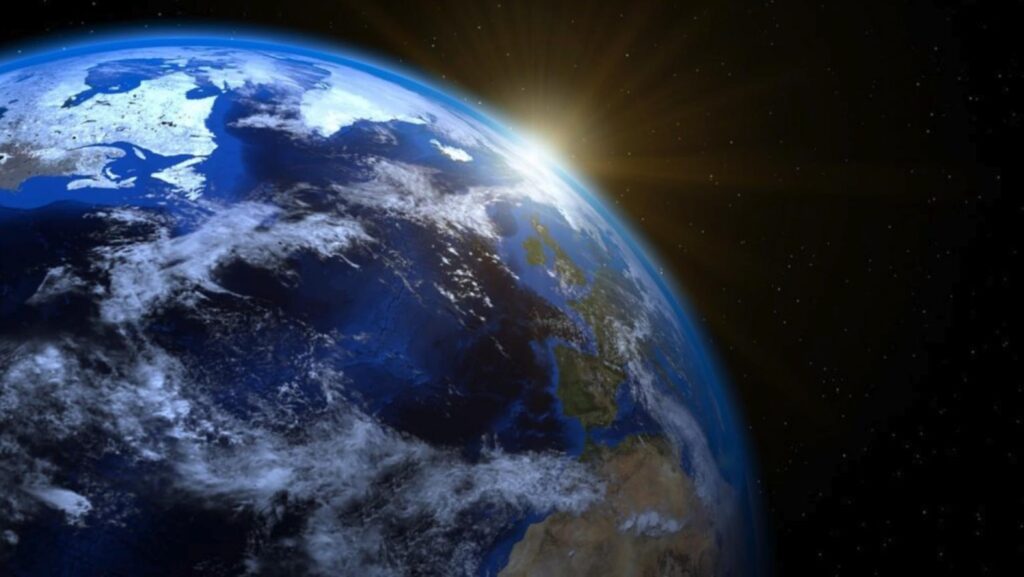
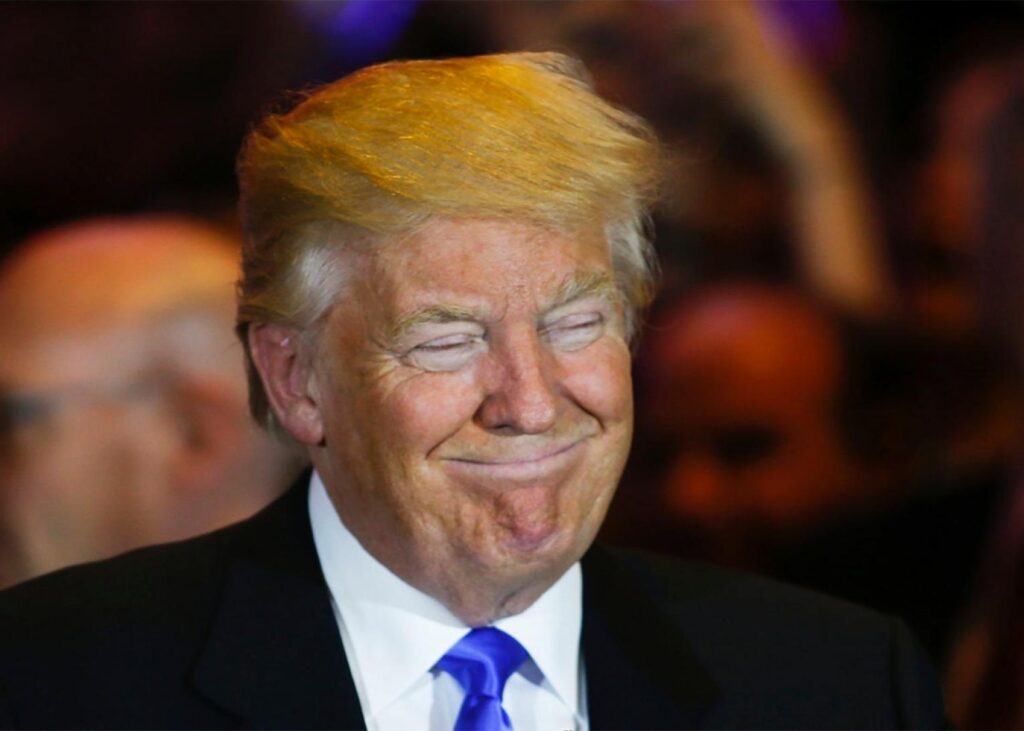

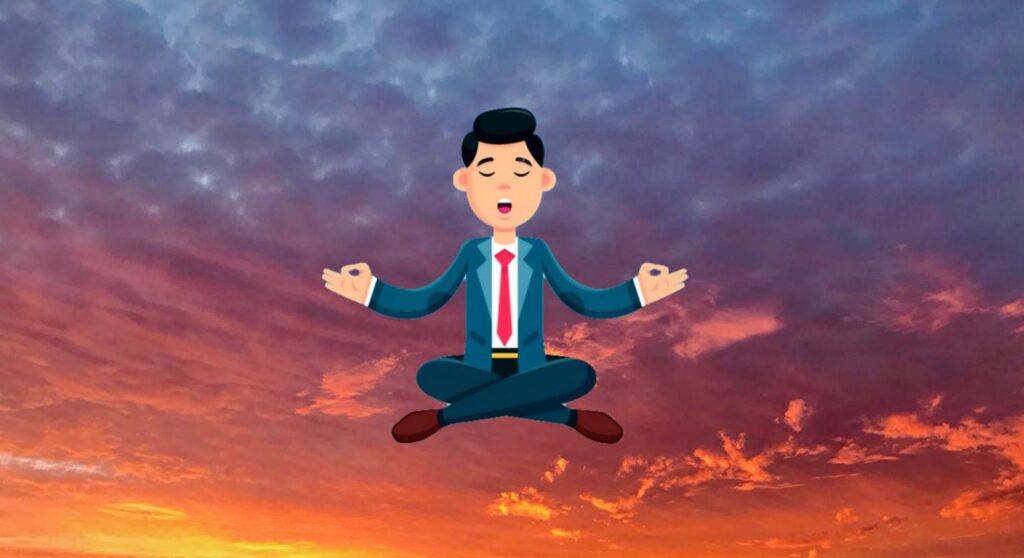
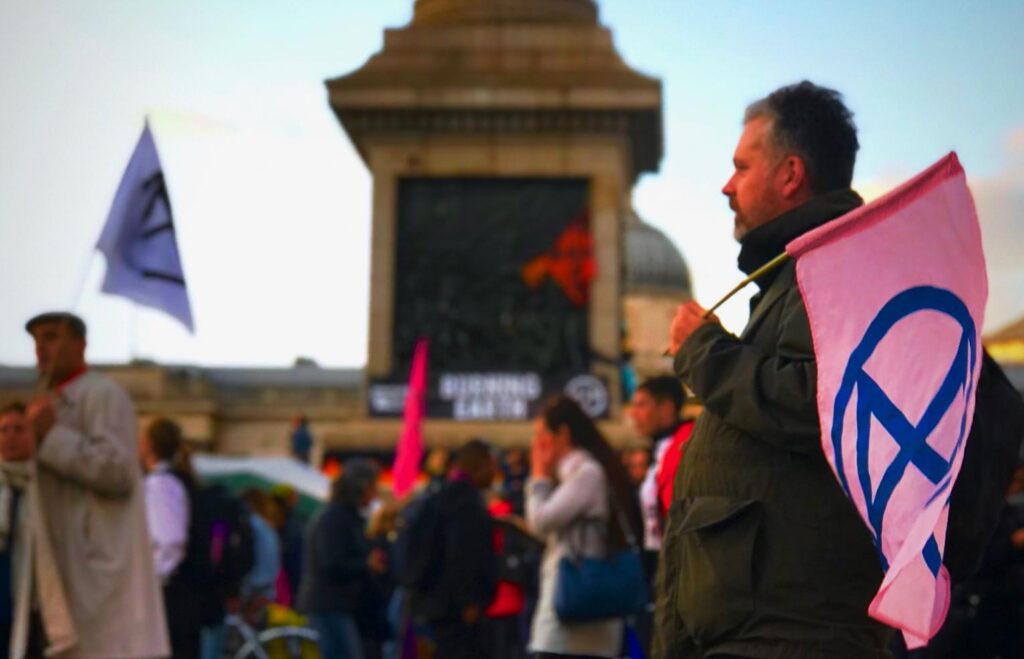
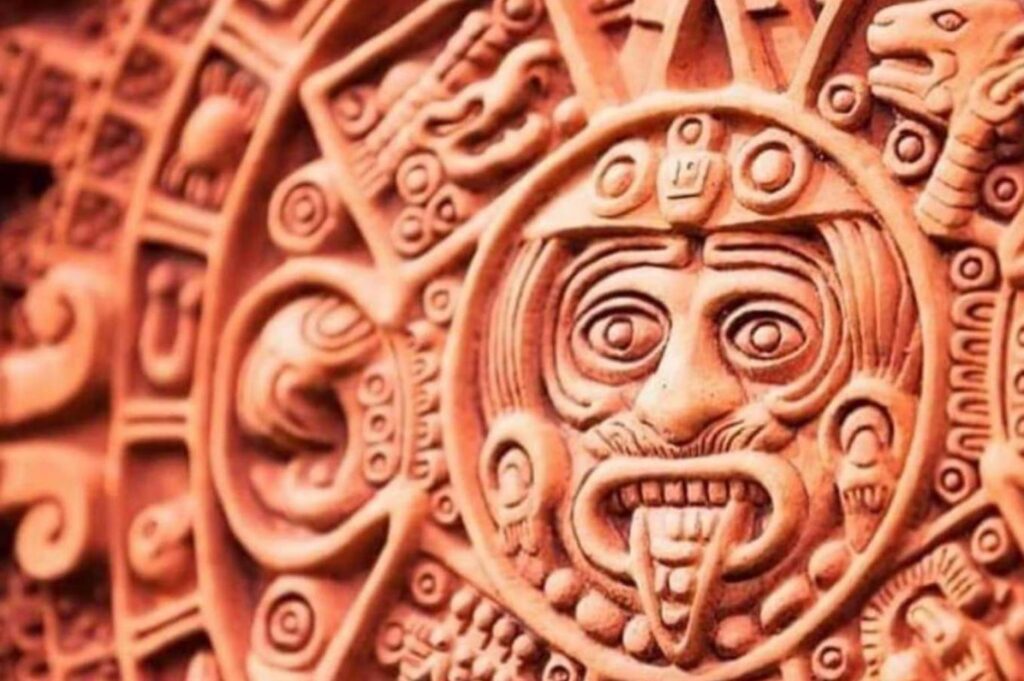
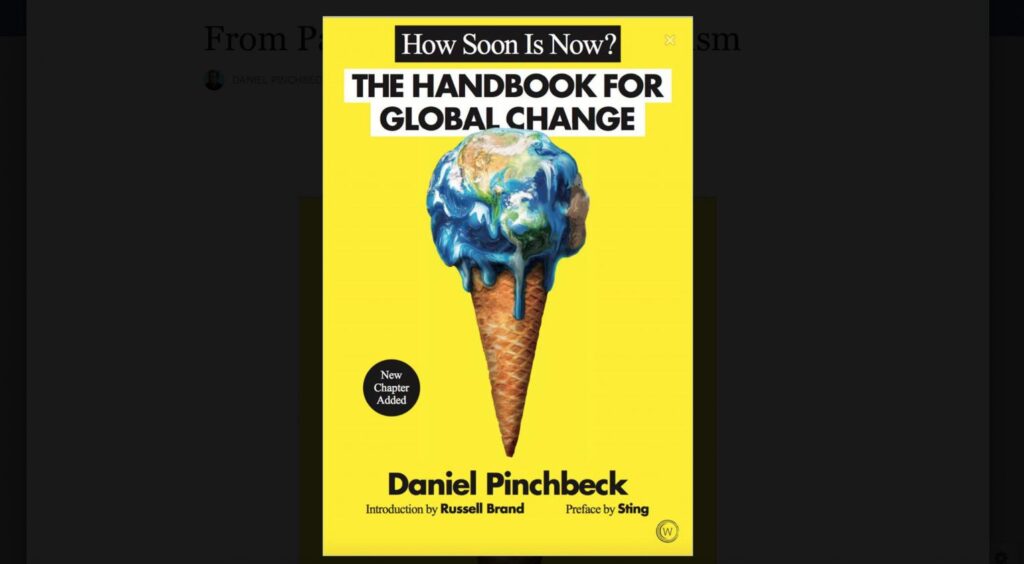
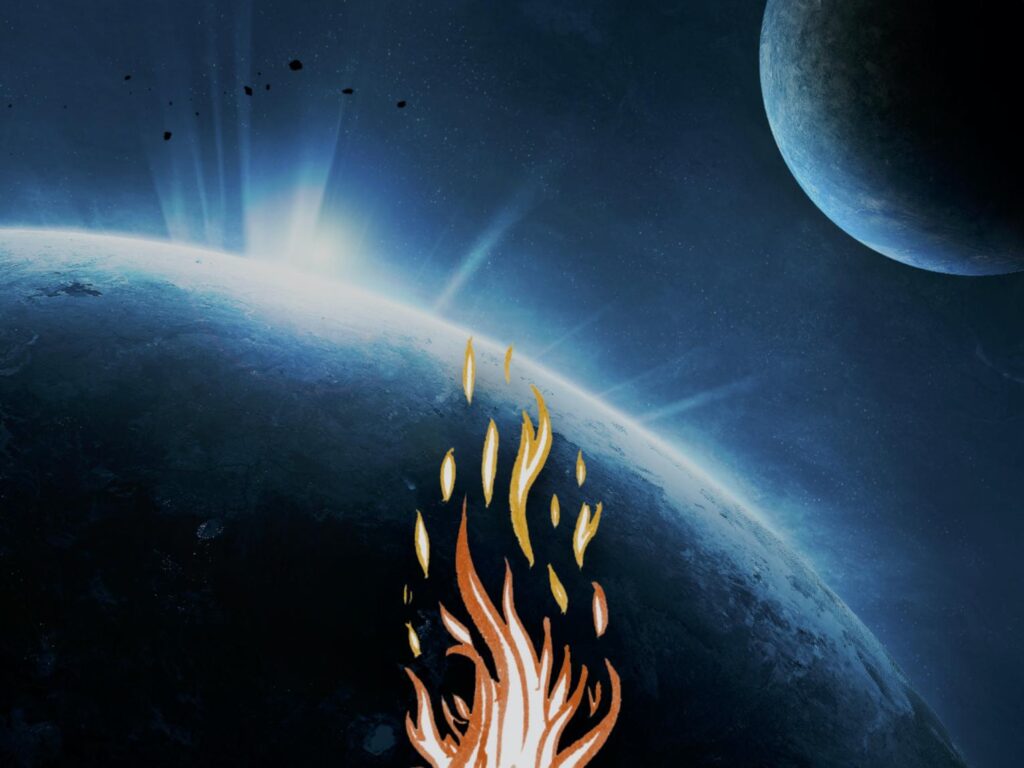


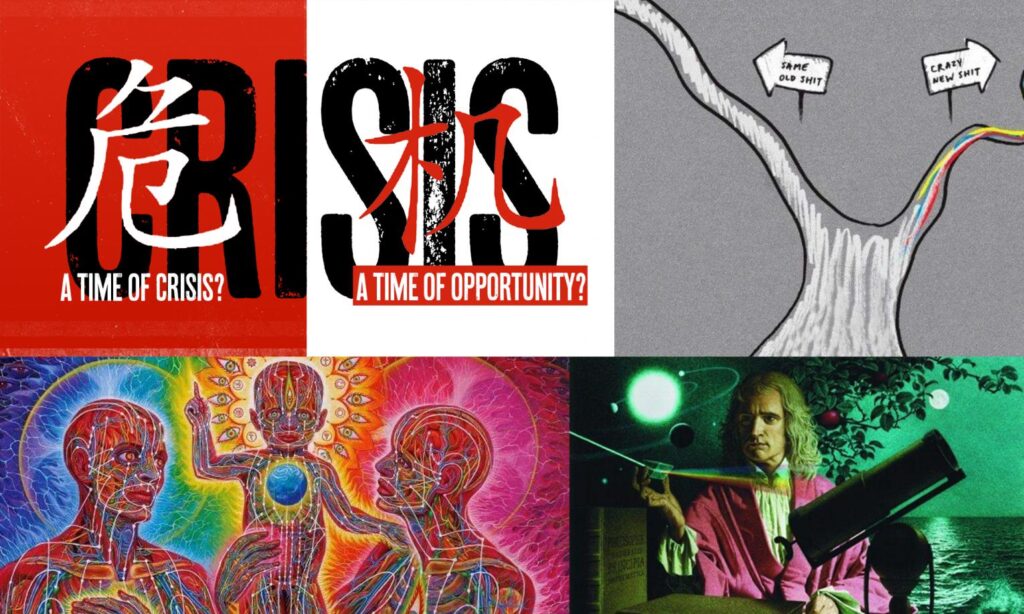
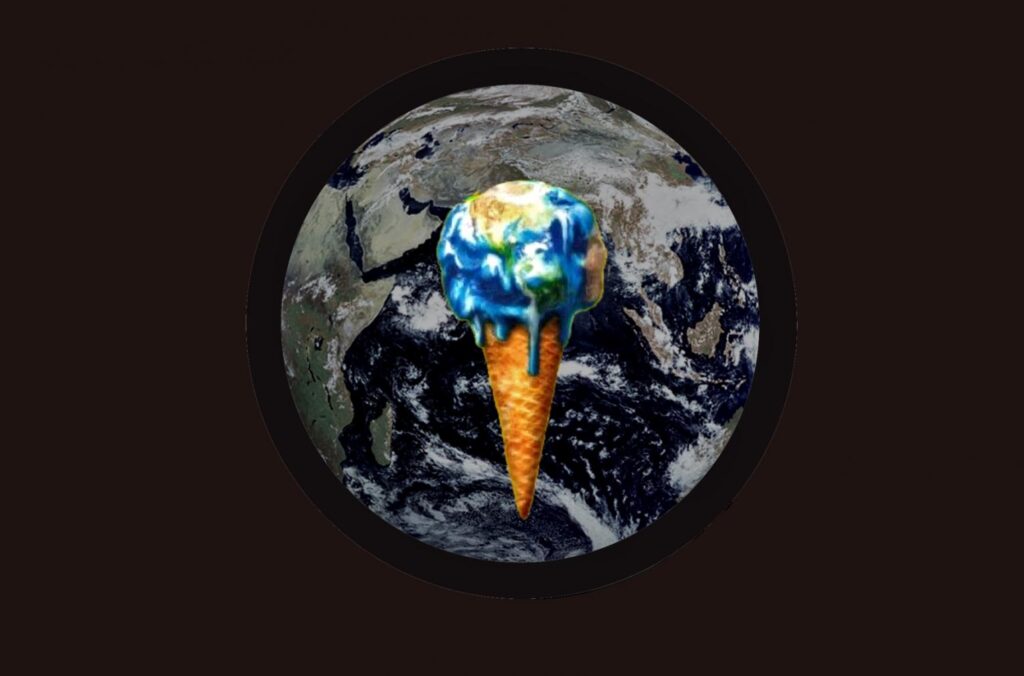
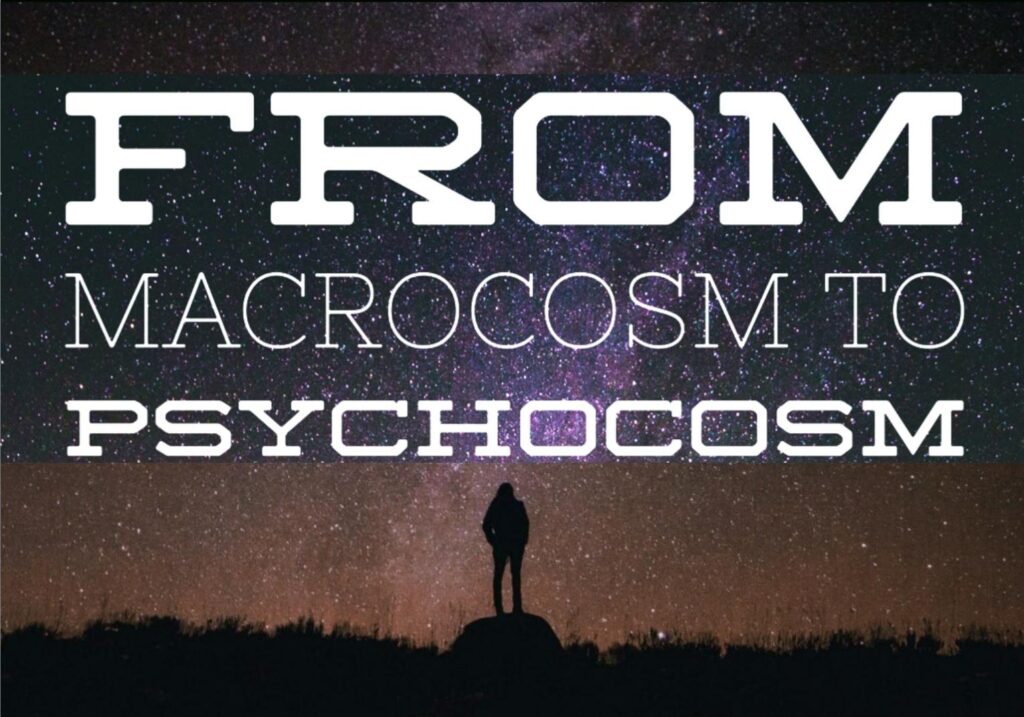
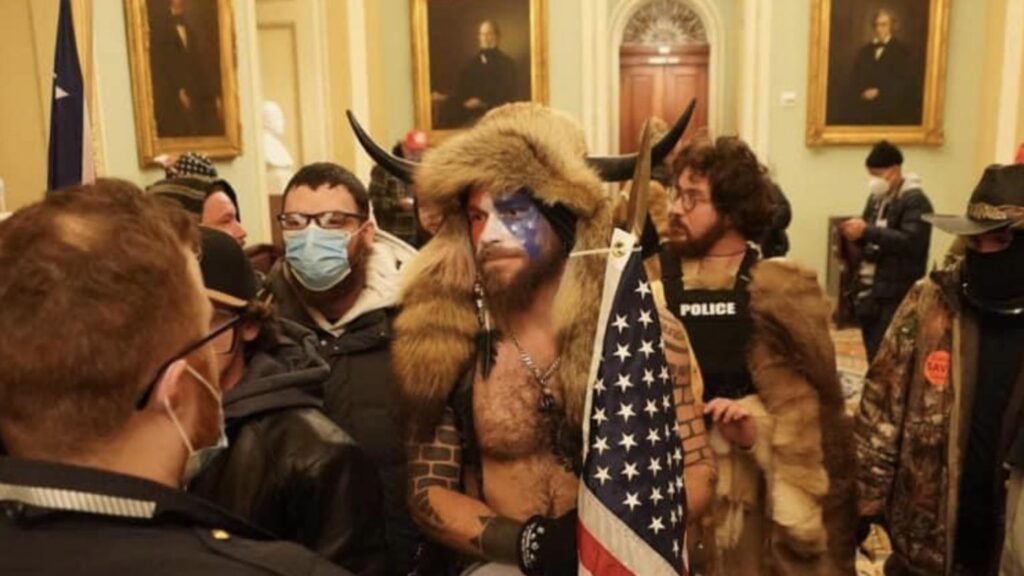

Responses